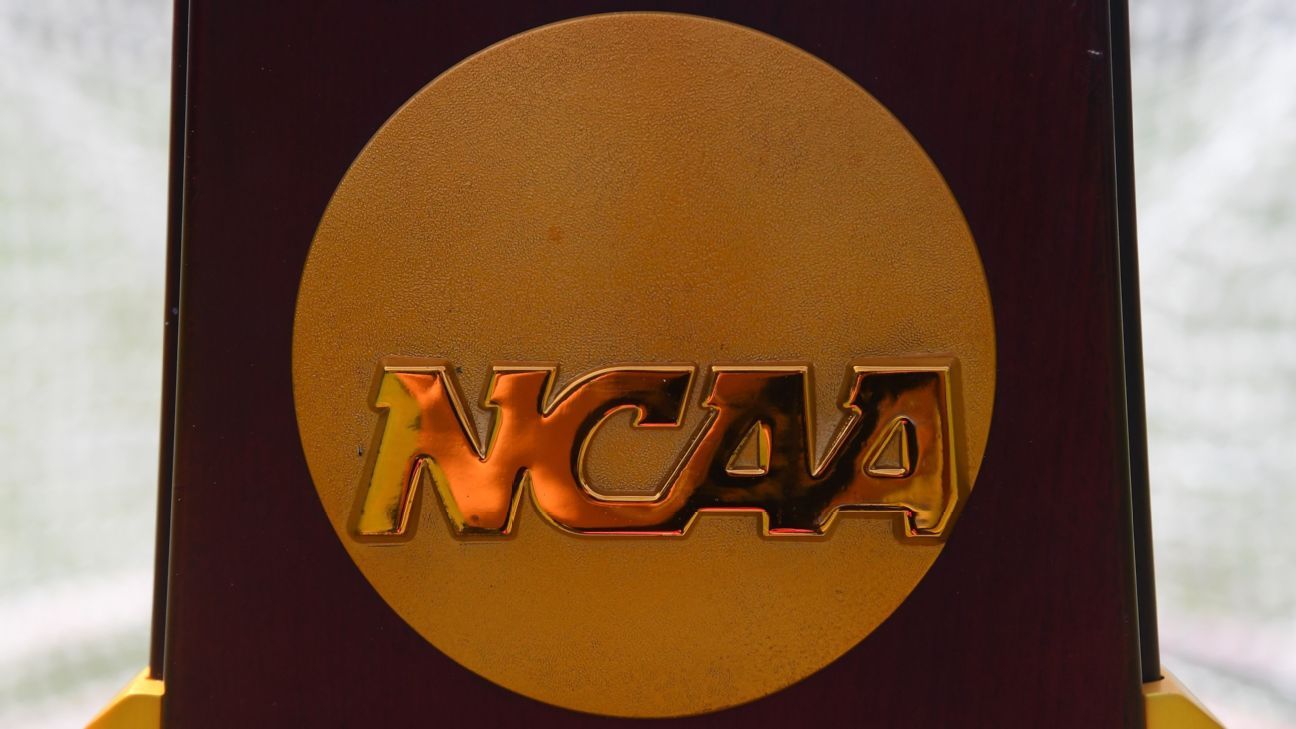
Athletes get class certification in case vs. NCAA
A federal judge granted class certification to three different groups of college athletes Friday in an ongoing antitrust case against the NCAA, a decision that significantly increases the potential financial penalties the NCAA could face.
Dan Murphy, ESPN Staff Writer
A federal judge granted class certification to three different groups of college athletes Friday in an ongoing antitrust case against the NCAA, a decision that significantly increases the potential financial penalties the NCAA could face if it continues its losing streak in federal court.
The lawsuit, known as House v. NCAA, was initially filed in 2020 by Arizona State swimmer Grant House and TCU basketball player Sedona Prince (then at Oregon) and was later combined with a separate complaint filed by former Illinois football player Tymir Oliver. After Friday's ruling, those three athletes now represent more than 10,000 of their peers who played Division I sports at some point between 2016 and present day.
The athletes and their attorneys argue that the NCAA's rules illegally block them from maximizing the amount of money they could be earning from selling the rights to their name, image and likeness. If the athletes are successful in court, the NCAA could be responsible to pay billions of dollars in damages.
A spokeswoman for the NCAA said the association disagrees with the judge's decision to view large populations of college athletes as a class with sufficiently similar claims because NIL payments are "highly specific" to individual athletes. Steve Berman, one of the lead attorneys representing the athletes in the case, called Friday's ruling a "huge step" for athletes looking to share in the revenue they help to create.
"We are hopeful that this lawsuit will usher in a new era of college sports -- one which players will recall as a monumental shift that finally leveled the playing field," Berman said in a statement Friday night.
The House case represents a major financial threat to the NCAA and is one of several current legal challenges aimed at trying to force the association to change its business model. A string of federal antitrust lawsuits in the past decade have been largely successful at chipping away different parts of the NCAA's long-held amateurism rules. Most of those cases have been argued in front of California-based Judge Claudia Wilken, who also issued Friday's ruling in the House case.
Wilken approved a plan to divide the large group of athletes into three distinct categories: one class for football and men's basketball players, one class for women's basketball players and another class for all other Division I athletes. The groups are divided based on the ways those athletes might have been able to maximize their earnings if the NCAA's rules were different.
The plaintiffs argue that there are three different categories of lost earnings: money from all NIL deals that were prohibited prior to the NCAA adopting new, temporary rules in July 2021, money from video game deals, and money from broadcast rights. They argue that the men's basketball and football players lost money in all three categories, that women's basketball players lost money from broadcast deals and general NIL restrictions and that all other athletes lost money from the general NIL restrictions.
The NCAA said it also disagrees with the decision to create three separate classes because it would result in an "inequitable approach to award 96% of damages to men and only 4% to women" if the athletes are assigned payouts that are proportionate to the size of the television contracts for their grouping.
The plaintiffs submitted testimony from two experts who argued that football and basketball (both men and women) players provide at least 10% of the value in television broadcast rights contracts -- deals that in some cases in football and men's basketball are worth more than $1 billion per year. The NCAA's lawyers argued that there was no basis for assigning a dollar amount to how much value the athletes contributed to those contracts. Wilken wrote in her decision that she "finds ample support for Plaintiffs' assumption that student-athletes' NIL in broadcasts have value, and that their value is at least ten percent."
The NCAA and many other college sports leaders have asked Congress to create a law that, in part, would grant them protection from antitrust lawsuits while creating rules to try to preserve their unique business model. Members of Congress have drafted more than a half-dozen different proposals, but so far the lawmakers have not made significant progress toward voting on a new NCAA-related law.
The association is also currently trying to fend off multiple legal challenges that claim some college athletes should be employees of their schools, their conference or the NCAA itself. A hearing in one of those cases -- an NLRB complaint in Southern California -- is scheduled to begin next week.
The House case is currently scheduled to go to trial in January 2025, but the two sides could potentially reach a settlement before then.